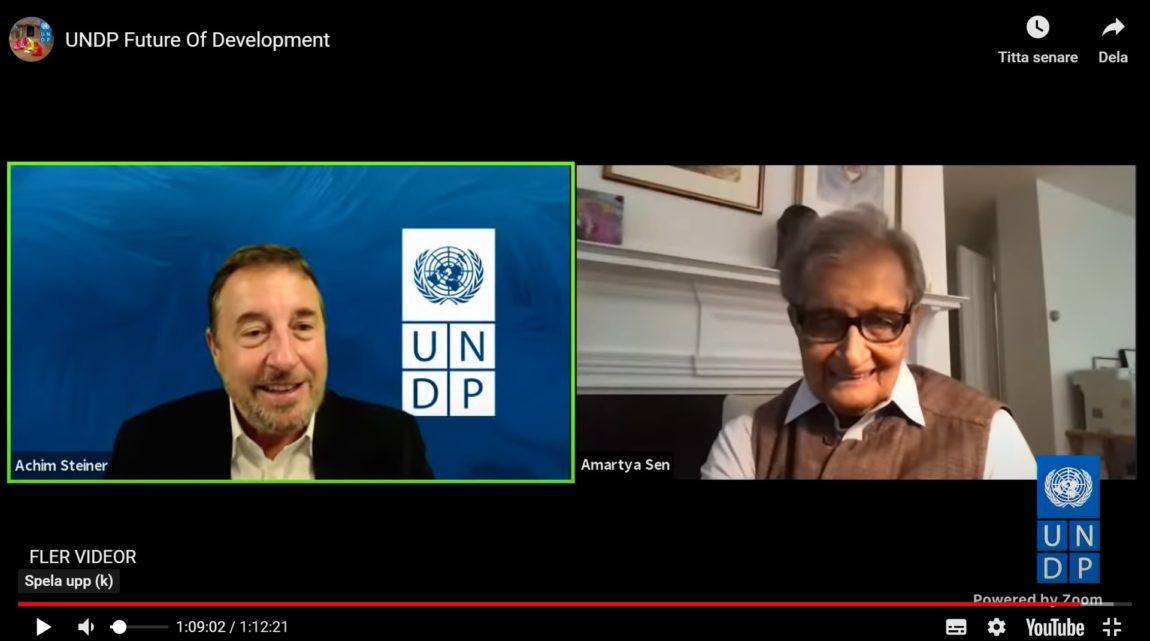Den 15 december släpps UNDP:s årliga flaggskeppsrapport Human Development Report. I år är det 30-årsjubileum för rapporten och temat kommer den här gången att vara Human Development and the Anthropocene.
UNDP, som är FN:s utvecklingsprogram, har tidigare beskrivit bakgrunden till årets tema så här:
Climate change, biodiversity loss, and land use change point to an unprecedented moment in our 200,000 years as a species and in the 4.6 billion years of the Earth, in which humans have now become a geological force. Some argue that we are living in a new geological epoch, the Anthropocene. These human-led impacts risk our common future and are also already eroding opportunities and destroying the livelihoods of many, threatening to deepen existing inequalities.
Människan i antropocen var också ett av de ämnen som nyligen diskuterades i UNDP:s nya samtalsserie: Future of Development.
Först ut i samtalsserien var UNDP-chefen Achim Steiner som i ett webbsänt samtal mötte ekonomi- och filosofiprofessorn Amartya Sen, som av UNDP beskriv på följande sätt:
Amartya Sen introduced the concept of development of freedom. He was also, along with Mahbub Ul Haq, one of the fathers of the Human Development Report, so his participation in this inaugural event is particularly symbolic as we mark the 30th Anniversary of UNDP’s flagship publication.
Amartya Sen, född 1933, är en indisk nationalekonom som 1998 fick ta emot Sveriges Riksbanks pris i ekonomisk vetenskap till Alfred Nobels minne, bland annat med motiveringen:
Amartya Sen har gjort ett flertal centrala insatser i forskningen om grundläggande välfärdsfrågor. Insatserna sträcker sig från abstrakt teori för kollektiva beslut, över definitioner av olika mått på välfärd, till empiriska studier av svältkatastrofer.
Amartya Sen har också gett ut flera böcker på området. På Nobelpris-sidan, som nu dock har några år på nacken, tipsas exempelvis om följande tre verk:
- Collective Choice and Social Welfare (1970)
- On Economic Inequality (1973)
- Poverty and Famines: An Essay on Entitlement and Deprivation (1981)
Samtalet mellan Steiner och Sen kan ses här.
Bland annat 35 minuter in i sändningen, och några minuter framåt, diskuteras årets rapport, som enligt Steiner kommer heta The Next Frontier: Human Development and the Anthropocene.


